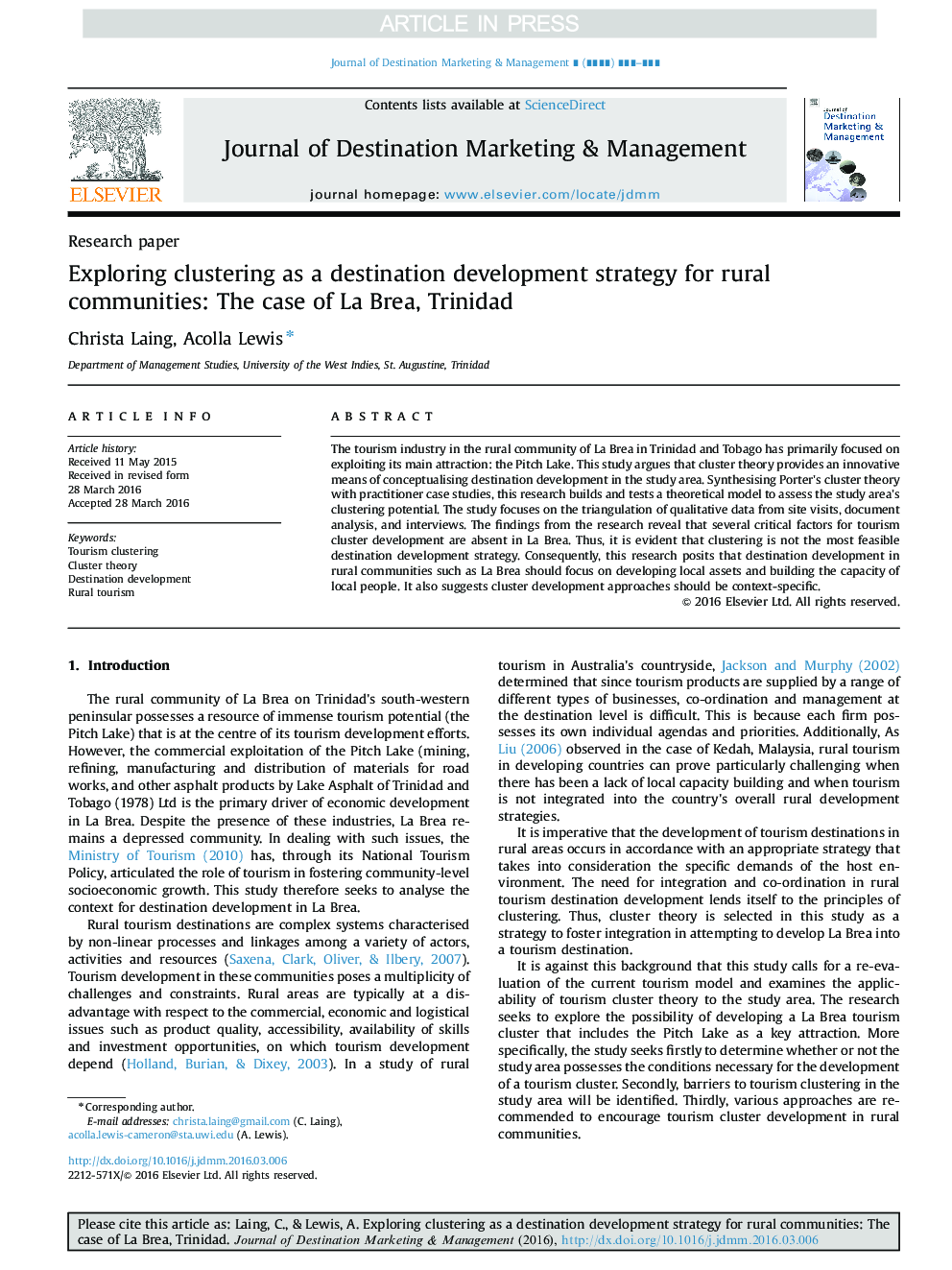| Article ID | Journal | Published Year | Pages | File Type |
|---|---|---|---|---|
| 5108300 | Journal of Destination Marketing & Management | 2017 | 12 Pages |
Abstract
The tourism industry in the rural community of La Brea in Trinidad and Tobago has primarily focused on exploiting its main attraction: the Pitch Lake. This study argues that cluster theory provides an innovative means of conceptualising destination development in the study area. Synthesising Porter's cluster theory with practitioner case studies, this research builds and tests a theoretical model to assess the study area's clustering potential. The study focuses on the triangulation of qualitative data from site visits, document analysis, and interviews. The findings from the research reveal that several critical factors for tourism cluster development are absent in La Brea. Thus, it is evident that clustering is not the most feasible destination development strategy. Consequently, this research posits that destination development in rural communities such as La Brea should focus on developing local assets and building the capacity of local people. It also suggests cluster development approaches should be context-specific.
Related Topics
Social Sciences and Humanities
Business, Management and Accounting
Business, Management and Accounting (General)
Authors
Christa Laing, Acolla Lewis,
